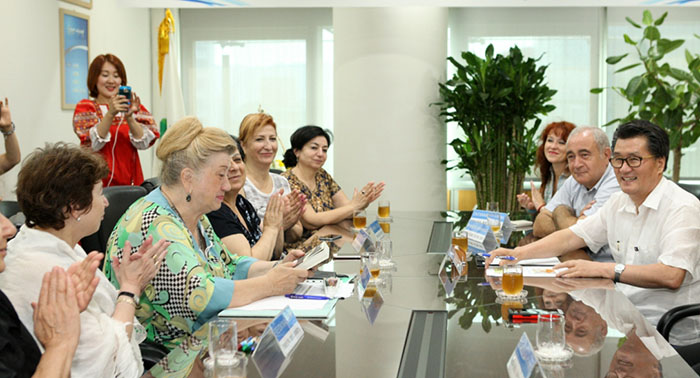
A Russian delegation of researchers that studies lifelong learning meets with representatives from Gwanak-gu District to discuss the district’s policies on lifelong learning, on July 12 in Seoul. Pictured is Professor Nina Litvinova Petrowna (left) who leads the delegation as she gives a copy of a book as a gift to District Mayor Yoo Jong-pil.
The borough of Gwanak-gu District, situated in southern Seoul, has a community of more than 500,000 residents living in an area of 29.57 square kilometers, accounting for barely 4.9 percent of the capital’s area. It's one of the poorest among Seoul's 25 districts, with lower-income families that earn less than KRW 2 million per month accounting for around 17 percent of the district's households. With no special industrial facilities or businesses, the district nonetheless recently welcomed a group of special guests from Russia on July 12.
A group of 10 researchers, consisting of professors from the Saint Petersburg State University of Technology and Design and from the Azerbaijan State University of Education, visited the offices of Gwanak-gu District. The visit was made possible by ties that Professor Nina Litvinova Petrowna, who leads the research group, made with Gwanak-gu District Mayor Yoo Jong-pil in 2015 when they met at a training program about lifelong learning.
The delegation showed great interest in the district's educational policies that focus on a “lifelong learning network,” as well as on “knowledge welfare.” A case in point for these new concepts of welfare can be seen in the district's “U-Library” network, a series of traditional lending libraries as well as unmanned libraries armed with state-of-the-art IT. In the mini-libraries, book lovers can borrow the book or movie they reserved using their smartphone app or online. These high-tech U-Library mini-libraries started in 2011 at Seoul National University Station on subway line No. 2, and are currently available at every subway station across the district.
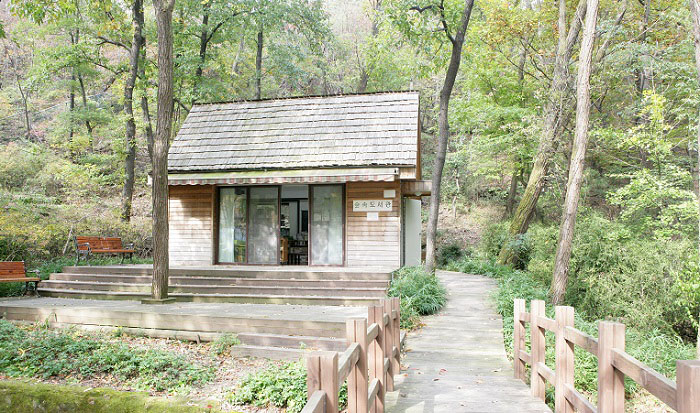
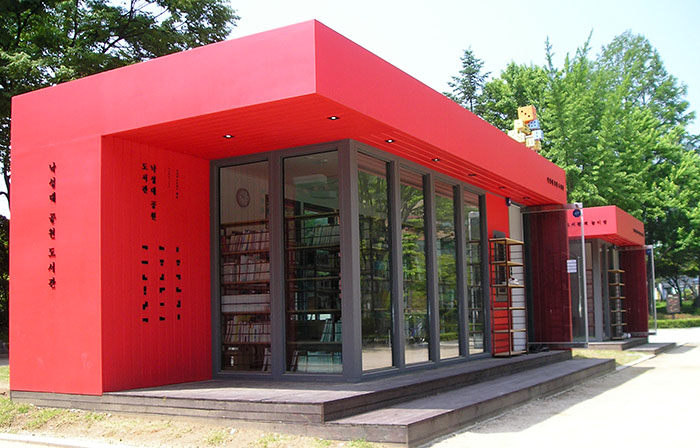
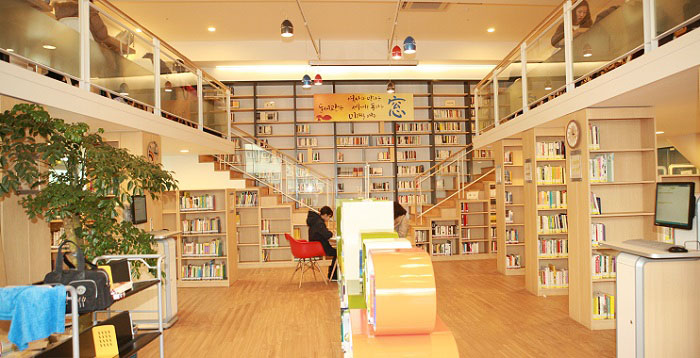
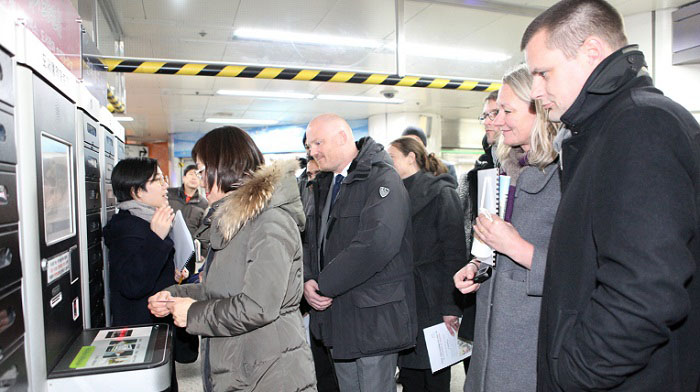
Gwanak-gu District in southern Seoul is home to a range of libraries, from small to large, that offer its citizens access to books. There's one in a local park (top), one at the offices of Gwanak-gu District (center) and even an automated library kiosk in a subway station (bottom).
In 2014, CCTV, the Chinese state news outlet, aired a brief program about these U-Libraries under the title “Korea’s subway stations turn into libraries.”
A local business called Smart Lunchbox (지식 도시락) delivers the books to the U-Library kiosks. It has so far delivered more than 360,000 books, which, if stacked on top of each other, would be 11 times the height of Gwanaksan Mountain itself, which peaks out at 629 meters.
Gwanak-gu District and its mini-libraries have had a constant flow of visits from administrative organizations from both at home and abroad that want to benchmark the idea, as well as visits from non-Korean media outlets that are eager to report about the system to their audiences back home.
“In my book 'Trips to Libraries Around the World' (세계 도서관 기행), I did talk about some Russian libraries,” said District Mayor Yoo Jong-pil who once served as chief librarian at the National Assembly Library. “We will continue to work to make the Gwanak-gu District a borough that provides sustainable lifelong learning opportunities through sharing and cooperation. We will also further develop projects that aim at exposing our community to more reading activities,” the district mayor said.
By Wi Tack-whan, Sohn JiAe
Korea.net Staff Writers
Photos: Gwanak-gu
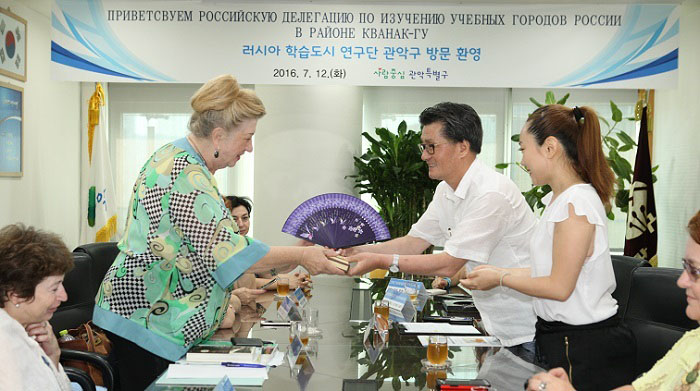
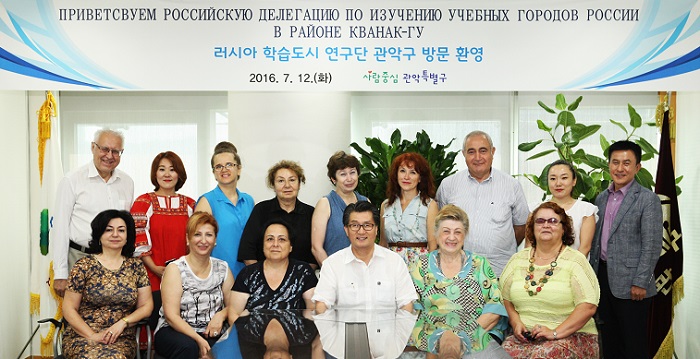
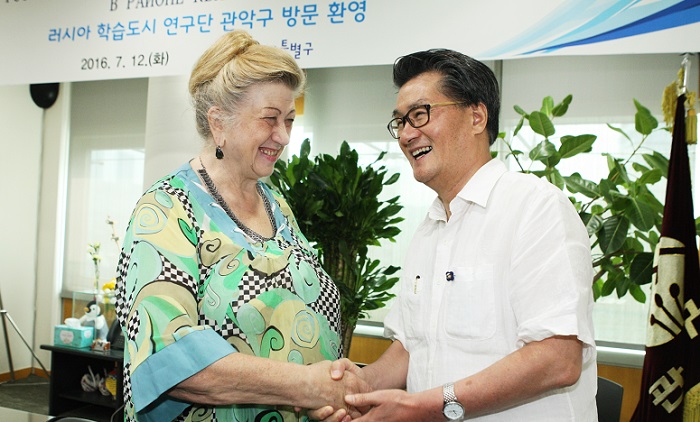
A Russian delegation of researchers visits the offices of Gwanak-gu District and shows deep interest in the range of educational services that the district offers its community, such as its lifelong learning policies and its range of mini-libraries.
